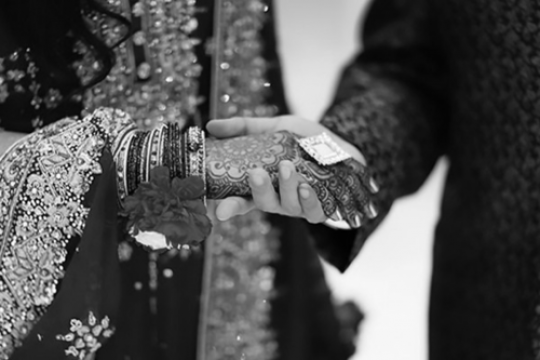
The Channel 4 documentary, The Truth About Muslim Marriage, which aired yesterday evening revealed that almost two thirds of Muslim woman married in Britain are not in legally recognised marriages. In order for this country to recognise a legal marriage, a couple would be required to have a civil ceremony alongside their Nikah religious ceremony. Unfortunately, this is a sight all too common for most Family Lawyers. Most of these women are not aware that they are not afforded the same rights and protections as those married in accordance with the laws of this country.
The survey found that 61% of women in this country who have had a traditional Muslim wedding ceremony had not gone through a separate civil ceremony which would make the marriage legal under UK laws. The survey questioned 923 women in 14 cities in Britain. More than a quarter (28%) of those women with only a Nikah marriage did not realise that it did not give them the same rights and protections as a legally-recognised marriage. The survey has suggested that Imans at the mosque could be better at explaining to couples the legal differences. Just one in eight of the women questioned said that their Imans advised them on what is required to be married in the eyes of British Law, meaning a staggering seven in eight were not aware of the true ramifications.
In cases where a Muslim male wishes to divorce, the process is simple, he merely has to say “talaq”, the equivalent of “I divorce you”, three times over a period of separation and the divorce is deemed to effective. This is quite different to the hurdles a Muslim female would have to overcome. Unlike a Muslim male, she cannot say “talaq”. She would have to contact the Sharia Council to seek a judicial decree on specific grounds to be free. The Sharia Council set out a list of criterion that must be met before this is even considered. Further, if the divorce is initiated by the female, she would have to waive her right to the “Mehr” or dowry, and return this.
In the event of a marriage breakdown the remedies available to a woman who has only had a Nikah is vastly different to that of a woman who has had a civil ceremony. In circumstances where parties have entered into a legal recognised marriage and are looking to divorce, the starting point, subject to factors such as the length of a marriage and the parties’ needs, would be an equal division of assets. In religious only marriages, claims for maintenance and a division of pension are relatively non-existent. The Courts in this country would view the relationship as one of cohabitation rather than marriage. It should be noted that the UK does not recognise the concept of a common law marriage.
Garrick Law Director Nick Gova, a family lawyer and specialist in Islamic law, has dealt with a number of claims where couples have been unable to agree a financial settlement between themselves and have had to pursue claims through the Civil Courts, rather than the Family Courts which is not only time-consuming but costly. The UK’s marriage laws have changed as society has changed, however it is still failing to take into account the millions of people of different faiths living in modern, multicultural Britain.
For more information on Islamic Divorces please click here.